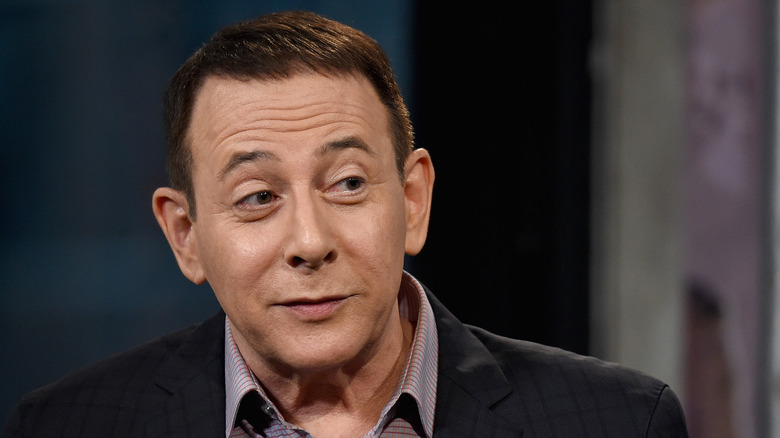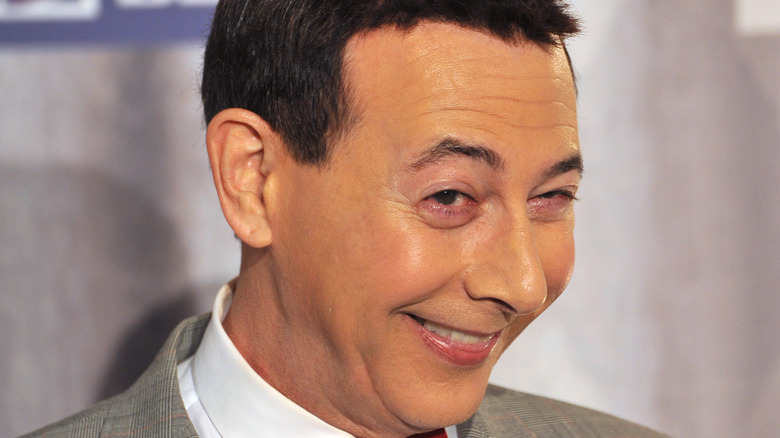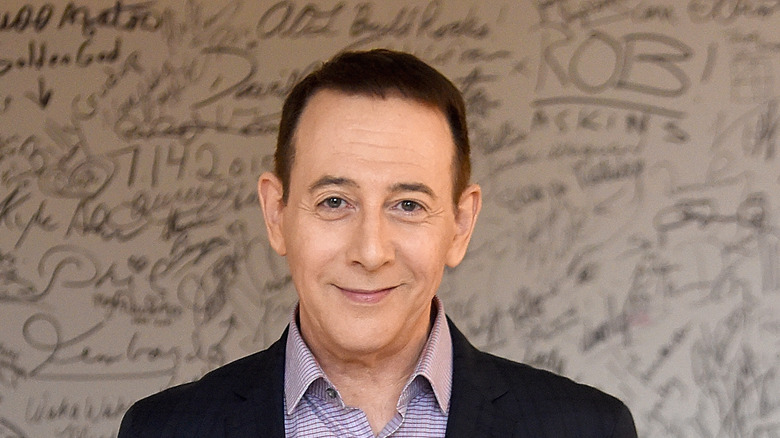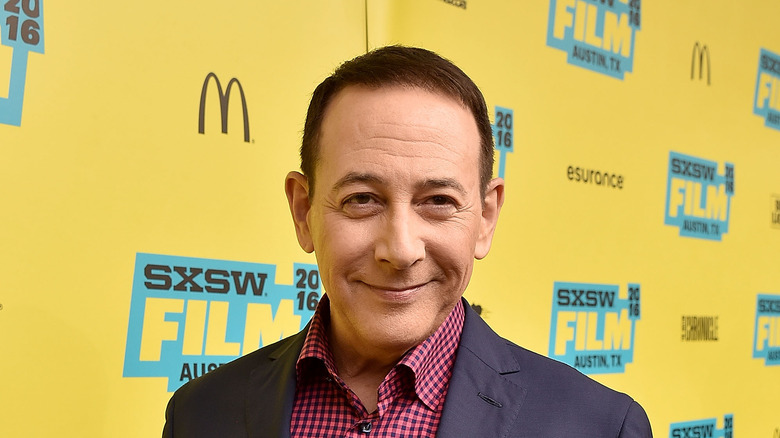The Two Bittersweet Words Paul Reubens Used To Describe Pee-Wee Herman
The character Pee-wee Herman burst onto the entertainment scene with the 1982 stage show "The Pee-wee Herman Show," and though Paul Reubens died in 2023, the character's legacy shows no signs of fading. For a character as zany as Pee-wee Herman, perhaps it's not surprising that the two words Reubens used to describe his creation on his Twitter are "rebel" and "loner." These same words were spoken by the character in 1985's "Pee-wee's Big Adventure": "You don't wanna get mixed up with a guy like me. I'm a loner, Dottie. A rebel."
In the film, Herman's character uses the line to get out of a date with Dottie (E.G. Daily), who asks him to the drive in. The quote in question has its own legacy and was even the inspiration for The Get Up Kids' "I'm a Loner Dottie, a Rebel."
During a 2004 interview with Stone Phillips (via NBC News), Paul Reuben spoke about the character Pee-wee Herman. According to the comedian, he viewed the character as someone with "a really good heart" who "didn't have a clue." "Somebody who was truly naive and was trying to do the best he could do, but it didn't always come out like that," he said.
An ode to misfits
After the release of the comeback film "Pee-wee's Big Holiday" in 2016, Paul Rust, who co-wrote "Big Holiday" with Paul Reubens, told Time his thoughts on the character Pee-wee Herman and the world he inhabits. "My favorite quality of Pee-wee is that he's not a weirdo in his world — he's accepted by everybody as normal," Rust said. "For anybody growing up feeling out of place, it's this utopia fantasy world where everybody's weird, everybody gets along. That's a bigger fantasy to me than 'Lord of the Rings.'" Anya Stanley for Crooked Marquee echoed these sentiments, writing, "The message, within minutes, is clear: don't overthink this, just kick back and regress. You're safe to be yourself here." She also said Herman was a "walking challenge to old concepts of masculinity" who "sits apart from society."
During his own talk with Time, Reuben acknowledged the character's unique, eye-catching nature but ultimately took a neutral stance on the character's nature, refusing to label his uniqueness as good or bad: "I'm just saying that you notice if Pee-wee Herman walks into a room." In a 2004 interview with Stone Phillips, following charges of indecent exposure and obscenity, the host noted that some were uncomfortable with the Pee-wee Herman persona. Here, Reubens was a bit less neutral: "I don't know if I can view Pee-Wee Herman as someone that would give you the willies."
Inspiration
Speaking to "Fresh Air" in 2004 (via WBUR), Paul Reubens revealed how he came up with the name for Pee-wee Herman: "I had a little one-inch-long harmonica that said 'Pee-wee' on it, and I knew a kid whose last name was Herman, and Pee-wee Herman sounded like the kind of name you would never make up," he said. "It sounded like, you know, a totally real name made up by somebody whose parents didn't really care about them." As for the persona, "Politics and the American Television Comedy: A Critical Survey from I Love" suggests that Reubens drew heavily from actor and comic Pinky Lee of "The Pinky Lee Show."
According to Groovy History, the initial template for Herman — a nervous comedian — was created by Reubens and Phil Hartman in 1978 with The Groundlings, a Los Angeles troupe he began working with in the 1970s before he debuted his creation to the world in 1982. Speaking to Parade (per Groovy History), Reubens revealed that at the beginning, his character in some ways reflected his comedy — one of his weaknesses in particular. "I could never remember punch lines to jokes, so my character was a bad comic you would never expect to make it," he said. The character evolved from here before debuting to the world with "The Pee-wee Herman Show," and the rest is history.
Intentional ambiguity
It's hard to pin down the Pee-wee Herman character, and this ambiguity is intentional. "To me, there was a conceptual aspect to Pee-wee," Paul Reubens said (per Wired). "If you thought Pee-wee was a kid, fine. If you thought Pee-wee was a man trying to be a kid, great. If you thought Pee-wee was developmentally challenged, fine, whatever."
The sexuality of Herman has also been questioned in works like "Out in Culture," and Reubens, of course, seemed to avoid making any definitive statements. When The New York Times' Jonah Weiner pressed the actor on the purported homoeroticism in "Pee-wee's Big Holiday," "Reubens flashed a grin unmistakable in its mischievousness and replied, 'I have no idea what you're talking about.'"
Many would argue the uniqueness and ambiguity of Pee-wee Herman is why the character's legacy is so strong, and time will tell whether it will continue on in the absence of Reubens.



